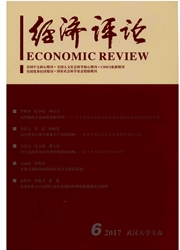

 中文摘要:
中文摘要:
本文利用以“社会价格”为基础的两方搜寻匹配模型分析婚姻市场均衡条件及价格扭曲导致的失衡。在行为主体理性、价格信号准确的婚姻市场,将形成“顺序的”均衡结果,即同等级、同类别男女结合的“同型婚配”;但是主体对自身及对象价格估计的偏差,都将导致市场失衡。一方面,自我高估导致本应匹配的男女无法顺利结合,自我低估则使人仓促迈入并不合适的婚姻,此外,两者均有消极外部影响——将条件最差的男人(女人)驱逐出婚恋市场、使其无法找到婚配对象。另一方面,“社会价格”信号可能发生故意或无意的扭曲,造成对他人真实价值的错误估计以及随之而来的恋爱选择偏差;但是这类价格扭曲将随着相处时间的增加、双方信息的对称化而逐步得到修正。
 英文摘要:
英文摘要:
This paper examines the equilibrium and disequilibrium in the marriage market by using a two - sided search model based on the theory of social price. When all agents are rational and price signal is not distorted, the market reaches the perfect sorting homogamy equilibrium, in which agents with similar types and categories marry within their groups. But misestimations for both oneself and others lead to disequilibrium. On the one hand, over - self - estimated individuals turn down matches of the same type. Under - self - estimated people end up in unfit marriages at an earlier time. Both kinds of inaccurate self - evaluation have the negative externality which prevents the low - type men/ women from marrying. On the other hand, the displayed social price may be distorted from the actual social price of an individual either on purpose or indeliberately, leading to the absence of marital market clearing. However, the misrepresented price will be gradually corrected as the time spent together increases and information asymmetry fades away.
 同期刊论文项目
同期刊论文项目
 同项目期刊论文
同项目期刊论文
 期刊信息
期刊信息
